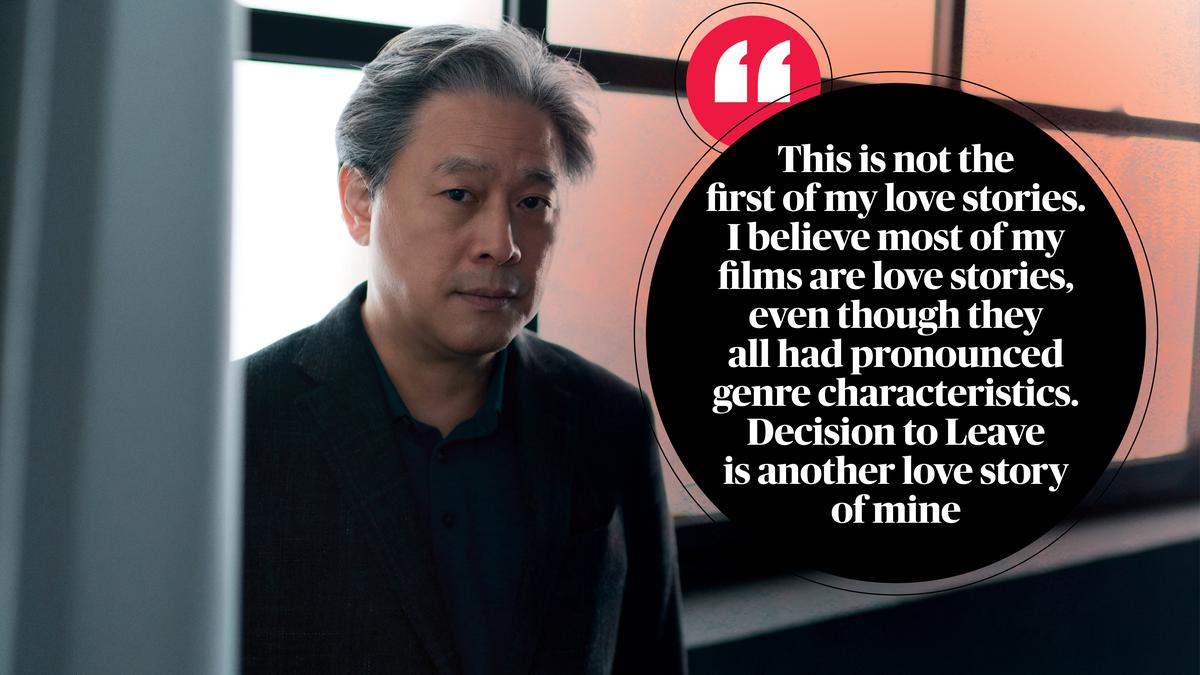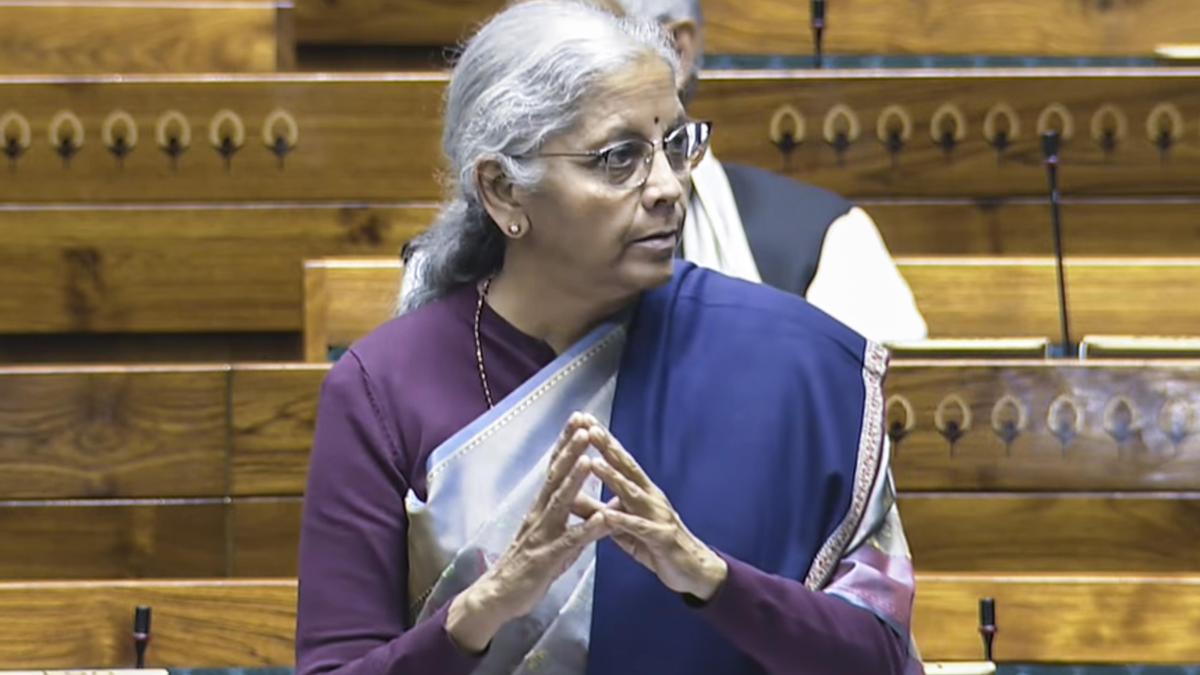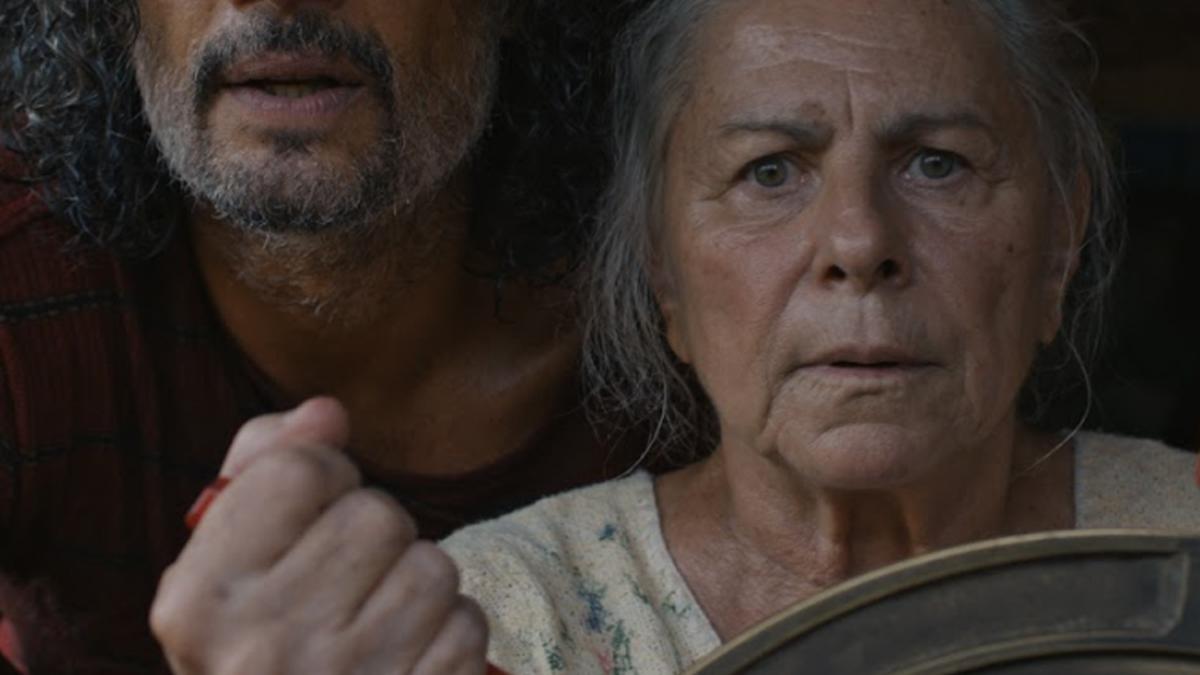Detective Jang Hae-jun only sees his wife Jung-An during weekends. At work, they are made fun of for their “weekend marriage”. Hae-jun takes up the case of a dead person found at the foothills of a mountain he often climbs and uploads on his video channel. Sounds good so far? The dead person’s wife Song Seo-rae, an immigrant from China, is called for investigation. She is suspected of killing her husband. As the plot thickens, Hae-jun becomes dangerously close to the suspect and eventually falls in love with Seo-rae.
Think of Alfred Hitchcock’s masterpiece, Vertigo (1958) — or even Rear Window (1954). Decision to Leave marks the return of South Korean auteur Park Chan-wook to direction six years after The Handmaiden (2016), if you discount the webseries, The Little Drummer Girl, he directed in 2018. Decision to Leave fetched Park the Best Director Award at the prestigious Cannes Film Festival earlier this year, and is now South Korea’s official entry for the Best International Feature Film at the upcoming 95th Academy Awards.
The film is a classic detective story but also a classical romance. It gives the aura of a Hitchcockian movie; the starting point, however, was the work of another master — David Lean’s Brief Encounter (1945). Decision to Leave is a beautiful marriage of the two genres; Park says the combination happened because he had two sources of inspiration. He wanted to make an investigative drama and yet, a romantic film based on the Korean pop song ‘The Mist’ (1967).
“These two ideas were separate in the beginning but I thought it would be nice if I can combine the two. But there were several reasons that made me feel I have made the right decision,” says Park, via a translator, over a video call from South Korea.
One was the love story between the detective and suspect. The other, was their romantic relationship that also entails suspicion between them, thus forming the base for tension.
“There are some moments when they either suspect each other or are being suspected. Not only does the tension rise two fold, I felt that it would rise five or six fold. In the end, I was sure that my decision was right because such amalgamation of genres bore a great fruit,” he says.
It is rather odd for the South Korean master, who has earned a notorious international reputation for exploring radical subjects, the highly stylised extreme violence, punctuated by graphic sexual encounters, to make a soft and restraint Decision to Leave, where his signature elements are rather invisible. Park agrees that it is his most mellow work. At the same time, he wants to emphasise that contrary to general perception, the filmmaker has only been making love stories.
“This is not the first of my love stories. I believe most of my films are, even though they all had pronounced genre characteristics. Maybe that is why you feel that this film is quieter,” says the director.
Park Hae-il and Tang Wei in a scene from South Korean movie ‘Decision to Leave’
| Photo Credit:
MUBI India
Of course, there are quite a few trademark aesthetic designs that Decision to Leave shares too: detective Hae-jun uses eye drops throughout, as if to suggest that his vision is blurred; often the camera zooms on Hae-jun’s ring, and the “stain” from ring marks on Seo-rae’s finger; Hae-jun tells his fellow officer the reason he looks into the eyes of the corpse. “The last person the dead might have seen is the killer. I promise them to catch the killer,” he says.
That promise is broken. Park often plays with the ‘focus’; sometimes Hae-jun is in the foreground, while Seo-rae is blurred and vice versa. We even get a corpse’s point-of-view shot — all of which produces powerful, hypotonic images.
Why storyboarding helps
Decision to Leave, if anything, is a melancholic mood piece. Was it always like this in Park’s script? “It’s extremely difficult for me to give the exact percentages,” laughs Park. “I can tell you that usually things don’t change too much from what I had already written.” Quite a startling claim.
But that is how Park works. He storyboards all his movies along with the director of photography during the pre-production stage; Decision to Leave took about two months for storyboarding. Once a storyboard is created, it is as good as the final edit. That is how much Park packs details into it.
“When I make a storyboard, things become clearer and more sophisticated at the level of the script. During the shoot, 90% of what DOP does is, follows the storyboard,” informs Park, “Of course, the major variable is acting. Because, even though we read the screenplay together and review the storyboard, it really depends on someone’s imagination and interpretation that would bring about a different outcome.”
Park says he was fortunate that he had two wonderful actors in Tang Wei (who is a well-known Chinese actor) and Park Hae-il. There was a lot of chatter among them during the pre-production and on the set. “Every new attempt will bring about a brand new mood that I wouldn’t expect and a new interpretation to my final work.”
In Park’s enviable body of work — starting with The Vengeance Trilogy [in Sympathy for Mr Vengeance (2002), Old Boy (2003) and Lady Vengeance (2005)], Thirst (2009) to The Handmaiden (2016) — all his characters seem to come from extreme pathological states, as if they are trapped in their own heads. He seems to derive pleasure in exploring the tricky corners of the human mind. Is there a fair bit of Park, either in his movies or characters? Is there a realisation about the self when he writes?
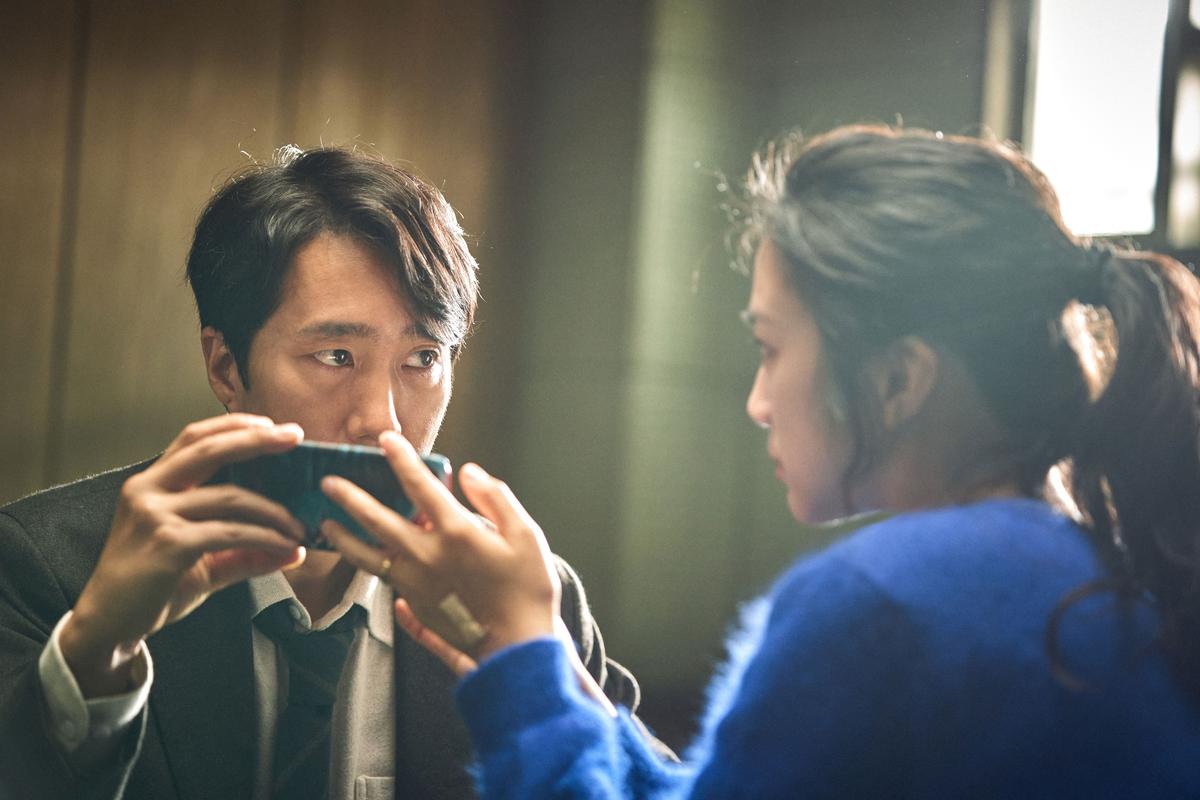
‘Decision to Leave’ is Park Chan-wook’s return to direction after ‘The Handmaiden’ in 2016
| Photo Credit:
MUBI India
“I am a filmmaker who doesn’t necessarily reflect my own thinking or psychology into my work,” he shoots back. “Of course there are certain things that are bound to be reflected in my work. For example, there are details like Seo-rae [in Decision to Leave] being afraid of height comes from my own experience. Other than that, I don’t necessarily put my personality or aspects of my life into the films.”
When Park made the erotic period movie The Handmaiden, a Gothic lesbian revenge drama set in the 1930s Korea under Japanese colonial rule, it received worldwide acclaim for being a rare piece of sensual cinema. Decision to Leave elicits a similar effect; at its heart, it is about two lonely people who are quite terrible at being honest to their emotions.
Primal emotions
Sensuality doesn’t depend on how much nudity is shown or graphically you describe the love affair of the characters, says Park. And it is true for a movie that benefits largely through the actors’ gestural performances. He corrects himself, though — “I wouldn’t say nudity is not important at all. That is another critical element of a sensual film.”
When viewers develop a connection with the characters; when they start looking at Seo-rae and Hae-jun, trying to notice and synchronise their tempo of breathing, and listening to the sounds and watching their facial expressions when they inhale and exhale together, it leaves them with a strong sensual reaction. “A good example is when the male character puts lotion on the hand of the female character and says, ‘Your hands are too rough.’ That sight of the two hands will also come across as very much sensual,” says Park.
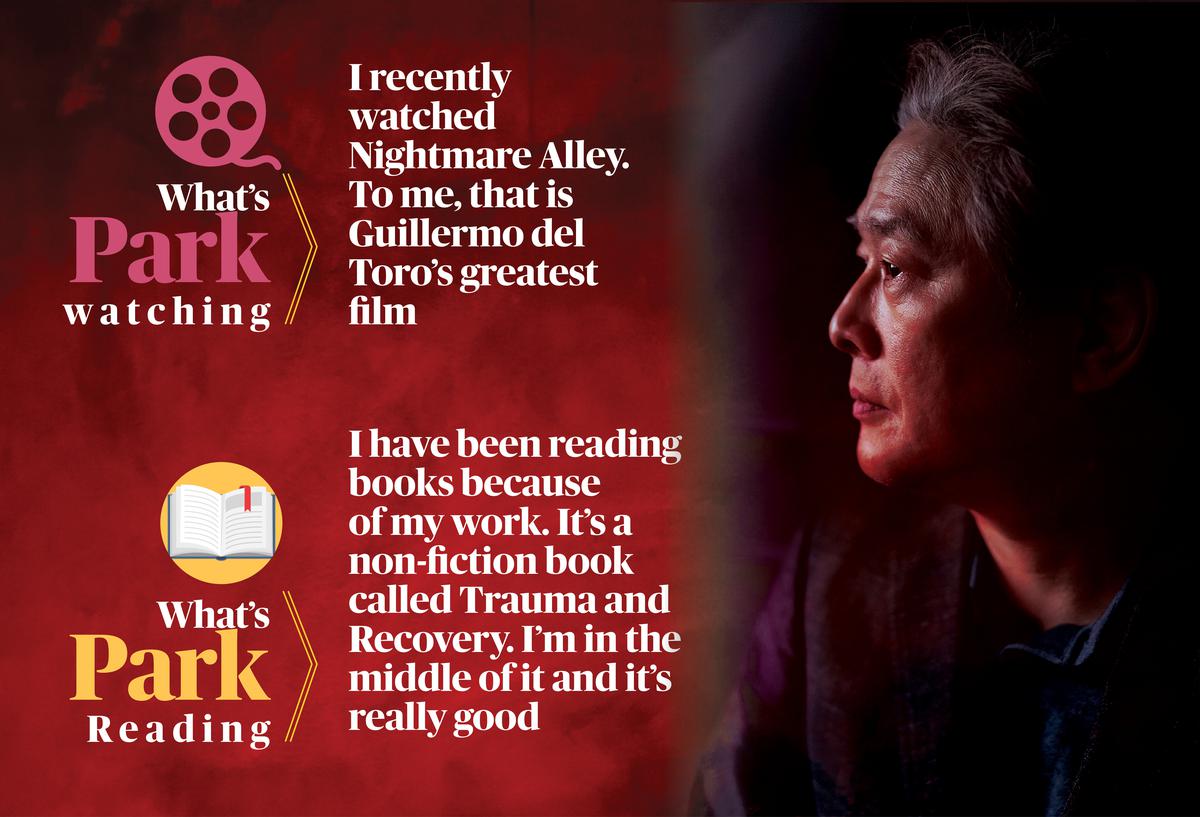
Park Chan-wook on why he storyboards all his movies
| Photo Credit:
MUBI India
The focus is essentially on the heart of the scene and the emotion it conveys. Park says that if an audience member is emotionally invested in what Seo-rae and Hae-jun are going through, and is ready to embrace them for who they are, it is a win for the filmmaker. “With the slight exposure of a part of the body or slight touch of one’s body; even a small action could also create a sensual impression and experience to my audience,” he adds.
Today, South Korea occupies a dominant position in the landscape of arts and culture. The country seems to be at the cusp of a renaissance, thanks to the exponential growth of the Korean Wave, dubbed as Hallyu, which is on the rise not just in India but world-over and has opened up new avenues of entertainment. This rapid interest in Korean pop culture and entertainment happened two decades earlier, at least for a large community of movie buffs.
Park smiles shyly when we politely remind him of the time he became the poster boy of New Korean Cinema at the turn of the century, along with contemporaries — Kim Ki-duk [ The Isle and Spring, Summer, Fall, Winter…and Spring], Bong Joon-ho [ Memories of Murder and Parasite] and Lee Chang-dong [ Oasis and Burning].
It is not like Park isn’t aware of the influence he has on Indian filmmakers, and the near demi-god status that Indian fans [who actually owe a lot to torrents] have bestowed upon him. “I know that Indians have taken great interest in my films. I heard that Old Boy was remade in India. I have not had the opportunity to look at it but I’m really curious how that came out,” says Park. If only he had seen Zinda [directed by Sanjay Gupta].
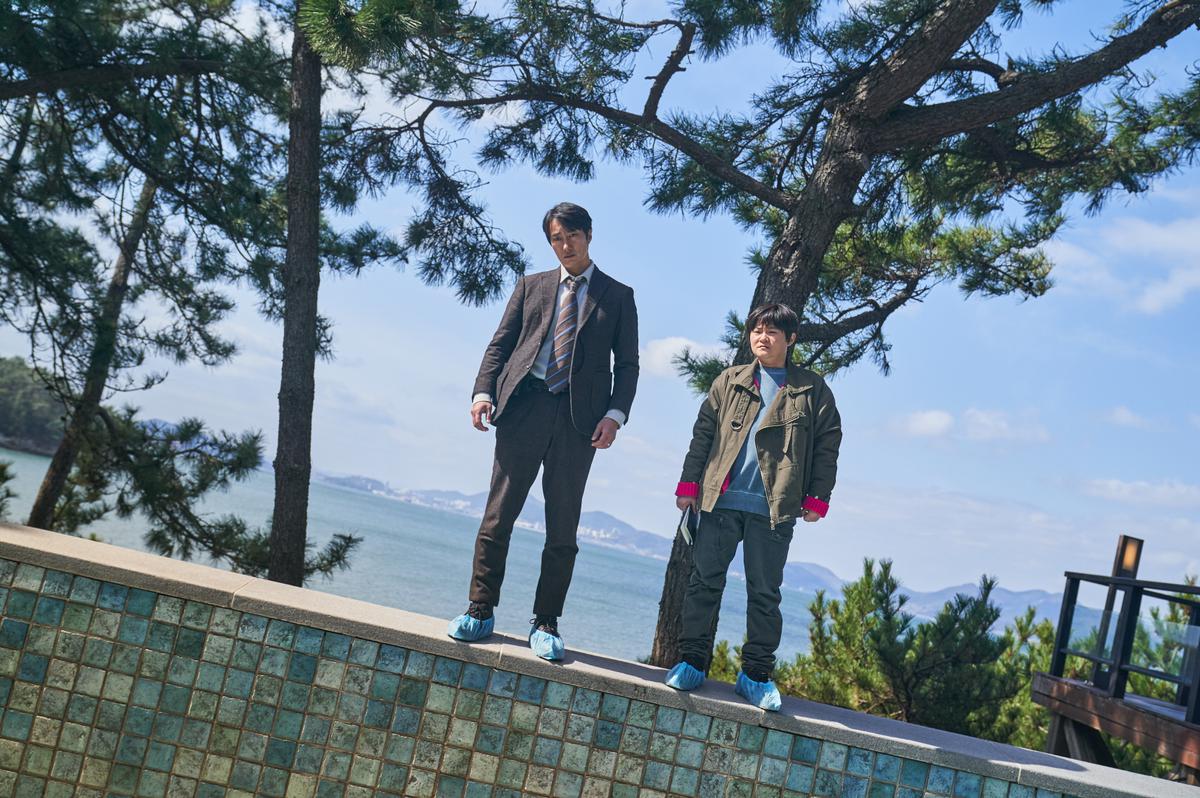
A still from ‘Decision to Leave’
| Photo Credit:
MUBI India
But back to the Korean Wave.
Park says that when one country’s culture is transmitted [through art] beyond borders, the recipient country’s culture is also enriched in the process, allowing the consumers to broaden their worldview. “I believe such exchanges are not only good for Korean filmmakers but also beneficial for Indian people who have received and welcomed such cultural products in India. And vice versa; a lot of Indian cultural products are coming to Korea and I believe that will broaden the horizon for many Koreans who are enjoying Indian culture.”
Decision to Leave is currently streaming on MUBI India


